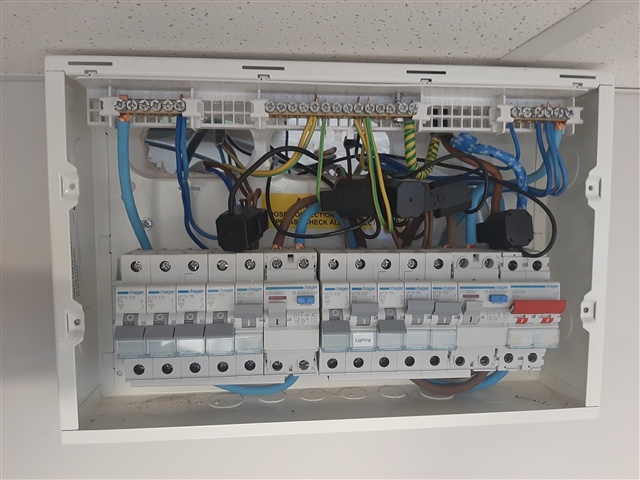Hi there sparkys!
I work for a company who manufacture CT Clamps to measure current consumption. I'm a presales engineer, not an electrician.
These clamps, as I'm sure you know, simply clip on to a conductor in a consumer unit or elsewhere, and in our case, transmit the information wirelessly to a device which translates and presents the data in a useful fashion.
I'm working on some marketing documentation, and I'd like to be clear about the legality of installing these devices in commercial premises. In order to install these devices, one simply has to clip them around an insulated live conductor, there is no need to turn off the power, or touch any bare metal. I know that British Gas and other companies hand these out to domestic consumers so that they can have a display showing how much energy they're using, so I assume that it is legal for any old idiot to clip these on to an insulated live conductor in a domestic consumer unit.
But what about commercial premises? I don't know the rules - can an unqualified/uncertified person open a RCD box or consumer unit or whatever it's called and clip these CT clamps on to a live conductor in commercial premises? Can an unqualified person even touch a commercial consumer unit?! I would have thought that regs would require a certified electrician to install these things, but one of our selling points is that they don't require professional installation or any permanent modification to the wiring, as they simply clip around an insulated conductor.
I've attached a picture of some of these clamps installed in one of our consumer units. These were actually installed by a certified electrician, but only through coincidence - the guy who did my job before me just happens to be certified, as he worked as an electrician before he started this job!
Any advice on the legal requirements of installing such devices would be appreciated. Obviously it's very important that our marketing materials don't advise anyone to break the law!
I'm asking this question from the UK, but we sell these devices globally, so any advice on different rules in Europe or America or anywhere else would also be welcome.
Thanks everyone!
